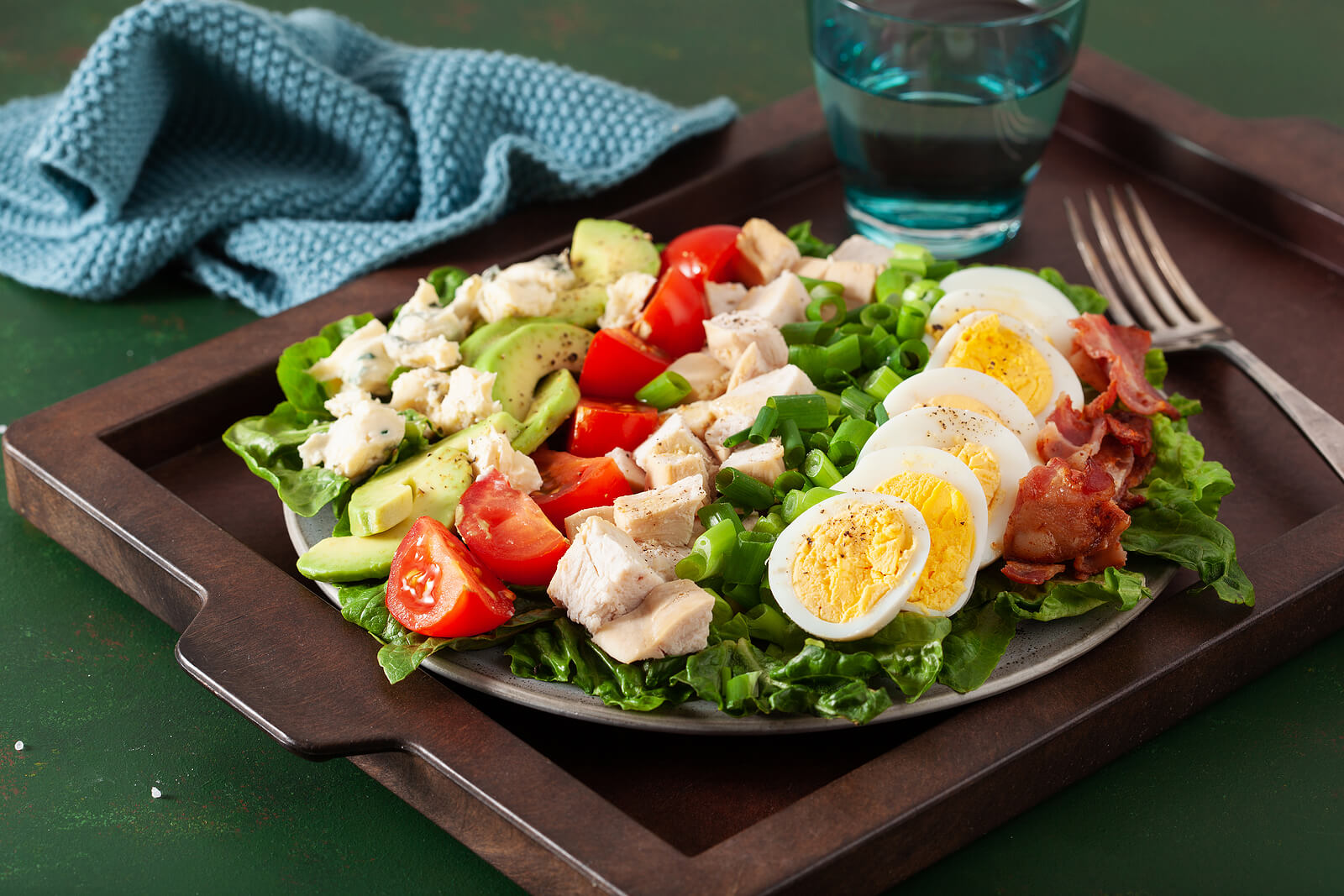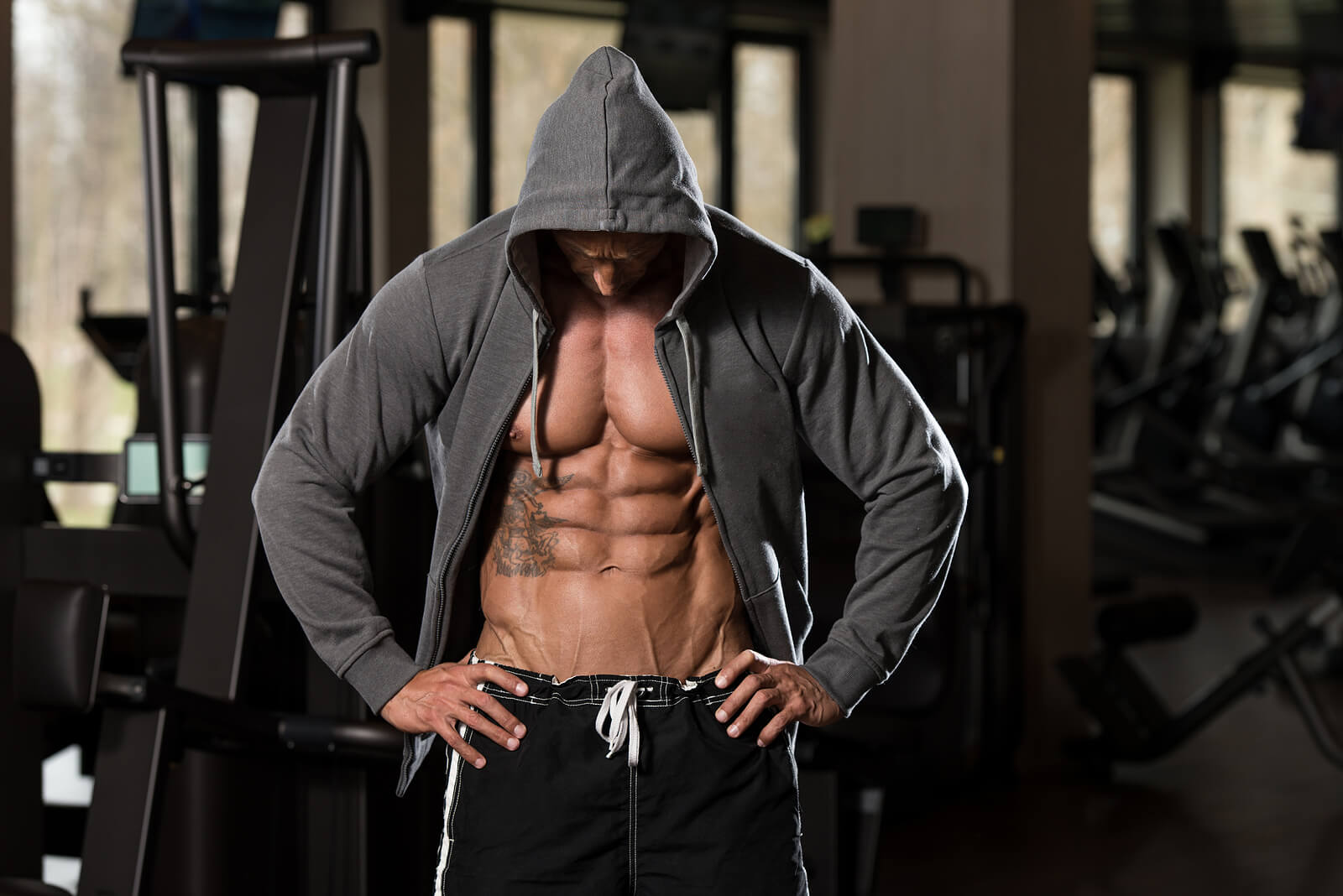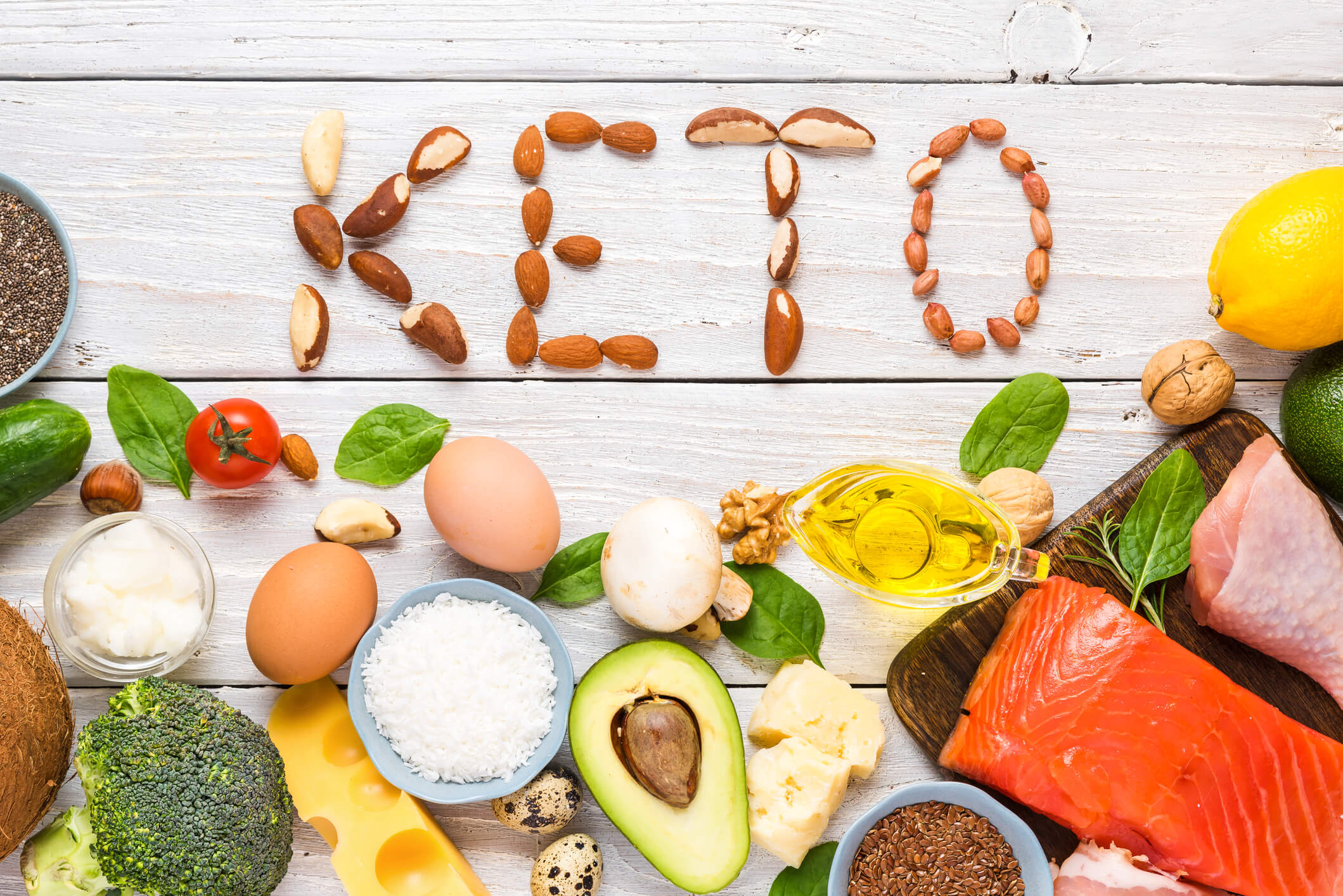If you’re looking to build muscle, you may have heard that eating six meals a day is a must. But is this really the case? The idea behind eating six meals a day is that it helps to increase your metabolism, which in turn can help you burn fat and build muscle. However, there is some debate over whether or not this is actually true.
On one hand, some research suggests that eating more frequent, smaller meals throughout the day can help to increase muscle protein synthesis. This is because it provides your body with a steady stream of amino acids, which are the building blocks of muscle.
However, other studies have found that there is no significant difference in muscle growth between those who eat six meals a day and those who eat three. So, is six meals a day good enough to build muscle? The answer is not clear-cut and may depend on various factors such as your individual metabolism and training goals.
The Concept of 6 Meals a Day
If you’re looking to build muscle, you may have heard that eating six meals a day is the way to go. The theory behind this is that by eating frequent, small meals throughout the day, you can keep your body in a constant state of anabolism, or muscle building.
The idea is that by eating every 2-3 hours, you can provide your body with a steady stream of nutrients, which will help to keep your metabolism elevated and prevent muscle breakdown. By doing this, you can create a calorie surplus, which is necessary for muscle growth.
However, the concept of six meals a day is not without its critics. Some argue that meal timing is not as important as overall calorie intake when it comes to building muscle. In other words, as long as you are consuming enough calories to support muscle growth, the timing of those calories may not matter as much.
Additionally, the idea of six meals a day may not be practical or sustainable for everyone. It can be difficult to find the time to prepare and eat six meals a day, especially if you have a busy schedule.
Ultimately, whether or not six meals a day is the right approach for you will depend on your individual needs and preferences. If you find that eating frequent, small meals helps you to stay on track with your calorie intake and support your muscle-building goals, then it may be worth giving it a try. However, if you find that it’s not practical or sustainable for you, there are other approaches you can take to support muscle growth, such as consuming larger, less frequent meals or using intermittent fasting.
Understanding Muscle Building
If you want to build muscle, it is essential to understand how muscle growth occurs. Muscle growth is a result of muscle protein synthesis, which is the process of building new muscle proteins. Muscle protein synthesis is stimulated by resistance training, which causes muscle damage. When muscle damage occurs, the body responds by repairing and building new muscle tissue, resulting in muscle growth.
In order to build muscle effectively, you need to provide your body with the necessary nutrients. Protein is the most important nutrient for muscle growth, as it provides the building blocks for new muscle tissue. In addition to protein, you need to consume enough calories to support muscle growth. Consuming too few calories can hinder muscle growth while consuming too many can lead to excess fat gain.
Many people believe that eating six meals a day is necessary for building muscle. However, there is no scientific evidence to support this claim. In fact, research suggests that the number of meals you eat per day has little to no effect on muscle growth.
Instead of focusing on the number of meals you eat, it is more important to focus on consuming enough protein and calories to support muscle growth. Aiming for a protein intake of 1.6-2.2 grams per kilogram of body weight per day and consuming enough calories to support muscle growth is more important than the number of meals you eat.
In addition to proper nutrition, rest and recovery are also essential for muscle growth. Adequate sleep, hydration, and rest days are all important factors in muscle recovery and growth. Resistance training is also crucial for muscle growth, as it stimulates muscle protein synthesis.
Overall, building muscle requires a combination of proper nutrition, rest and recovery, and resistance training. While eating six meals a day may work for some people, it is not necessary for muscle growth. Instead, focus on consuming enough protein and calories to support muscle growth and engaging in regular resistance training.
Role of Nutrition in Muscle Building
To build muscle, you need to consume enough nutrients to support muscle growth and repair. Nutrition plays a vital role in muscle building, and it is essential to consume the right amount of nutrients at the right time.
Protein is one of the most important nutrients for muscle building. It provides the building blocks for muscle tissue and helps repair muscle damage caused by exercise. To build muscle, you should aim to consume at least 1 gram of protein per pound of body weight per day. Good sources of protein include beef, chicken breast, fish, lentils, beans, peas, and plant-based protein sources like nuts and seeds.
In addition to protein, you also need to consume enough carbohydrates and fats to support muscle growth. Carbohydrates provide energy for your workouts, while fats help regulate hormone levels and support overall health. Good sources of carbohydrates include rice, pasta, corn, and raisins, while good sources of fats include almond butter, peanuts, and essential fats found in dairy and fish.
To optimize muscle growth, it is recommended that you eat 5-6 smaller meals throughout the day rather than 3 large meals. This approach ensures that your muscles receive a steady supply of nutrients throughout the day, which helps prevent muscle breakdown and promotes muscle growth. Each meal should contain a balance of protein, carbohydrates, and fats.
In addition to whole foods, protein shakes, and supplements can also be useful for meeting your daily protein needs. Whey protein is a popular choice for muscle building, as it is quickly absorbed by the body and contains all the essential amino acids your body needs for muscle growth and repair.
Snacks can also be an important part of your muscle-building diet, providing additional nutrients and energy between meals. Good snack options include nuts, seeds, and high-protein foods like salmon and eggs.
In summary, nutrition plays a critical role in muscle building. By consuming a balanced diet of protein, carbohydrates, and fats, and eating 5-6 smaller meals throughout the day, you can optimize muscle growth and achieve your fitness goals.
Importance of Exercise and Training
When it comes to building muscle, exercise, and training are crucial. Without proper exercise and training, your body will not be able to build muscle effectively.
Resistance training, such as weight training or bodyweight exercises, is the most effective way to build muscle. By lifting weights or performing bodyweight exercises, you create tension in your muscles, which causes them to adapt and grow stronger over time.
To build muscle effectively, it’s important to perform exercises that target all major muscle groups in your body. Compound exercises, which work for multiple muscle groups at once, are particularly effective. Examples of compound exercises include squats, deadlifts, bench presses, and pull-ups.
In addition to performing the right exercises, it’s important to pay attention to other factors such as reps, weight training, and tempo. The number of reps you perform during each set can impact your muscle growth. Generally, performing 8-12 reps per set is recommended for muscle growth.
Weight training is also important for building muscle. By gradually increasing the amount of weight you lift, you challenge your muscles and encourage them to grow. However, it’s important to increase the weight gradually to avoid injury and ensure proper form.
Finally, tempo, or the speed at which you perform each exercise, can also impact muscle growth. Slowing down the tempo of your exercises can increase time under tension, which can promote muscle growth.
In summary, exercise and training are essential for building muscle. By performing the right exercises, paying attention to reps, weight training, and tempo, you can maximize your muscle growth and achieve your fitness goals.
Understanding Metabolism and Energy Balance
To build muscle, you need to consume more calories than you burn. This is known as a calorie surplus. However, it’s important to understand that your body’s metabolism plays a crucial role in this process.
Metabolism refers to the chemical processes that occur in your body to keep you alive and functioning. Your metabolic rate is the rate at which your body burns calories. If you have a fast metabolism, your body burns calories at a higher rate, even when you’re at rest.
To build muscle, you need to create a calorie surplus. This means that you need to consume more calories than your body burns. However, it’s important to strike a balance between consuming enough calories to build muscle and not consuming too many calories, which can lead to fat gain.
Energy balance refers to the balance between the calories you consume and the calories you burn. If you consume more calories than you burn, you’re in a calorie surplus, and if you burn more calories than you consume, you’re in a calorie deficit.
To build muscle, you need to be in a calorie surplus, but you also need to make sure that you’re not consuming too many calories, which can lead to fat gain. This is where the concept of eating six meals a day comes in.
Eating six meals a day can help you maintain a fast metabolism, which can help you burn more calories throughout the day. However, it’s important to make sure that you’re not overeating. Each meal should be balanced and should contain a mix of protein, carbohydrates, and healthy fats.
In summary, to build muscle, you need to be in a calorie surplus, but you also need to make sure that you’re not consuming too many calories, which can lead to fat gain. Eating six meals a day can help you maintain a fast metabolism, but it’s important to make sure that each meal is balanced and that you’re not overeating.
Role of Rest and Hydration
When it comes to building muscle, it’s not just about what you eat or how many meals you have in a day. Rest and hydration are also crucial factors that can impact your muscle-building progress.
Rest
Getting enough rest is essential for muscle recovery and growth. During exercise, your muscles experience micro-tears, and it’s during rest that they repair and grow stronger. If you don’t allow your muscles enough time to recover, you’ll end up hindering your progress rather than helping it.
Make sure you’re getting enough sleep each night, as this is when your body does most of its repair work. Aim for 7-9 hours of sleep each night, and try to establish a consistent sleep schedule.
In addition to getting enough sleep, you should also take rest days from your workouts. This doesn’t mean you have to sit on the couch all day, but it does mean you should avoid intense workouts that target the same muscles you worked the day before. Instead, focus on low-impact activities like walking or yoga.
Hydration
Staying hydrated is also crucial for muscle-building success. Water plays a vital role in many bodily functions, including muscle repair and growth. When you’re dehydrated, your muscles can’t function properly, which can lead to decreased strength and endurance.
Make sure you’re drinking enough water throughout the day, especially before and after your workouts. Aim for at least 8 glasses of water per day, and more if you’re exercising in hot or humid conditions.
In addition to water, you can also consume other hydrating fluids like coconut water or sports drinks. Just be mindful of added sugars and calories, as these can add up quickly.
Overall, rest and hydration are essential components of any muscle-building program. Make sure you’re getting enough rest and staying hydrated to optimize your progress.
Specific Considerations for Different Groups
When it comes to building muscle, different groups of people have different dietary needs. Here are some specific considerations for various groups:
Bodybuilders
Bodybuilders require a higher protein intake than the average person to build and maintain muscle mass. It’s recommended that bodybuilders consume 1.2-1.7 grams of protein per kilogram of body weight per day. In addition to protein, bodybuilders should also consume complex carbohydrates and healthy fats to fuel their workouts and support muscle growth.
Athletes
Athletes also require a higher protein intake to support muscle growth and repair. However, they also need to consume enough carbohydrates to fuel their workouts and maintain their energy levels. It’s recommended that athletes consume 1.2-1.4 grams of protein per kilogram of body weight per day, along with enough carbohydrates and healthy fats to support their training.
Overweight Individuals
If you’re overweight and looking to build muscle, it’s important to focus on losing fat while also building muscle mass. This can be achieved by consuming a diet that’s high in protein and low in calories. It’s recommended that overweight individuals consume 1.2-1.5 grams of protein per kilogram of body weight per day, while also reducing their overall caloric intake.
Healthy Weight Individuals
For individuals at a healthy weight, consuming 1.2-1.5 grams of protein per kilogram of body weight per day is sufficient to support muscle growth and repair. However, it’s important to also consume enough carbohydrates and healthy fats to fuel your workouts and maintain your energy levels.
Aging Individuals
As you age, your body’s ability to build and maintain muscle mass decreases. To combat this, it’s important to consume a diet that’s high in protein and also engages in regular resistance training. It’s recommended that aging individuals consume 1.2-1.5 grams of protein per kilogram of body weight per day, along with enough carbohydrates and healthy fats to support their training.
Working with a Trainer
If you’re working with a trainer, they can help you determine the optimal amount of protein, carbohydrates, and fats to consume based on your individual needs and goals. They can also help you create a meal plan that’s tailored to your specific dietary needs and preferences.
Conclusion
In conclusion, the idea that eating 6 meals a day is necessary to build muscle is a myth. While it is true that consuming enough protein and calories is important for muscle growth, the frequency of meals is not as crucial as some may believe. The 80/20 rule can be applied to your eating habits, where you focus on eating healthy foods 80% of the time and indulging in less healthy options the other 20%.
It is important to remember that everyone’s fitness goals are unique, and what works for one person may not work for another. However, consuming enough protein and calories to support muscle growth is essential for everyone. Additionally, falling into the trap of thinking that you need to eat 6 meals a day to build muscle can lead to unhealthy habits and feelings of guilt when you don’t meet this standard.
Instead of focusing on the number of meals, focus on consuming enough protein and calories throughout the day to support your fitness goals. This can be achieved through a variety of eating patterns, such as intermittent fasting or eating 3 larger meals a day. Ultimately, it is important to find an eating pattern that works for you and supports your overall health and fitness goals.
In summary, while eating 6 meals a day may work for some people, it is not necessary for building muscle. Focus on consuming enough protein and calories throughout the day, and find an eating pattern that works for you and supports your overall health and fitness goals. Remember the 80/20 rule and don’t fall victim to the myth that eating 6 meals a day is the only way to achieve your fitness goals.






Leave a Reply